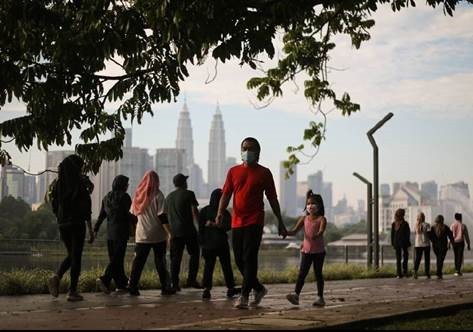
Image credit: New Straits Times
KUALA LUMPUR (June 9): An investment of RM350 billion to RM450 billion will be required over the 2030-2050 period in line with Malaysia’s commitment to being a net zero greenhouse gas (GHG) emission nation by as early as 2050.
Bursa Malaysia Bhd chairman Tan Sri Abdul Wahid Omar said this was based on a study done by WWF-BCG and admitted that this involves a lot of money yet it remains doable.
“But having said that, we are fortunate because out of that, 60% is viable and it would be very much driven by the private sector.
“Another 25% would be viable if we have the proper carbon pricing, with further emission reduction can be commercialised with carbon pricing around RM200 per tonne.
“That would leave only about 15% which may require public, multilateral, blended funding and financing,” he said at the “Sustainability for Business Longevity” session in conjunction with the Malaysian Institute of Accountants (MIA) International Accountants Conference 2022 on Thursday (June 9).
Abdul Wahid believes it is also manageable if looked from the perspective of percentage of gross domestic product (GDP).
“That kind of money we’re talking about is US$2.7 billion per annum and that just represents under 1% of our GDP.
“So, it is therefore doable as we are actually looking at RM12 billion to RM15 billion per annum compared to some other countries that would have to spend a lot more of their GDP like Indonesia at 1.8%, China at 2.1%, Brazil at 2.9%, South Africa at 4.4% and India at 7.4%,” he said.
Meanwhile, Abdul Wahid noted companies which ignore sustainability or ESG (environmental, social and governance) considerations in business strategy and operations will not be sustainable particularly in the longer term, and may be deprived of both equity and debt financing to fund their projects.
Besides finding it hard to get insurance cover or the need to pay a higher premium to underwrite some of their risks, companies may also experience difficulty in hiring the human capital talent necessary to drive their business risks.
In addition, companies may face challenges in selling their products or being part of the global supply chain due to shifting customer preferences towards sustainability attributes and implementation of climate-aligned trade policy measures.
“Beyond that, I don’t think businesses have got any choice. It is a matter of survival and longevity. It’s very clear that if you don't embed ESG or sustainability in your strategy and business operations, you will not survive,” said Abdul Wahid.
Abdul Wahid added that Bursa Malaysia is enhancing its sustainability reporting framework to ensure availability of credible and comparable ESG-related data.
The exchange’s proposal includes requiring the disclosure of a set of common sustainability matters and indicators that are deemed material for all listed issuers, and requiring all listed issuers to provide climate-related disclosures that are aligned with the Task Force on Climate-related Financial Disclosures (TCFD) recommendations.
Besides seeking in requiring the disclosure of sustainability matters and indicators that are deemed material for listed issuers in specified sectors, Bursa is also looking at requiring disclosure of data for at least three financial years for each reported indicator, and requiring all listed issuers to provide a statement of assurance.
Source: https://www.theedgemarkets.com/article/rm350brm450b-investment-needed-malaysia-be-net-zero-ghg-emission-nation-2050

